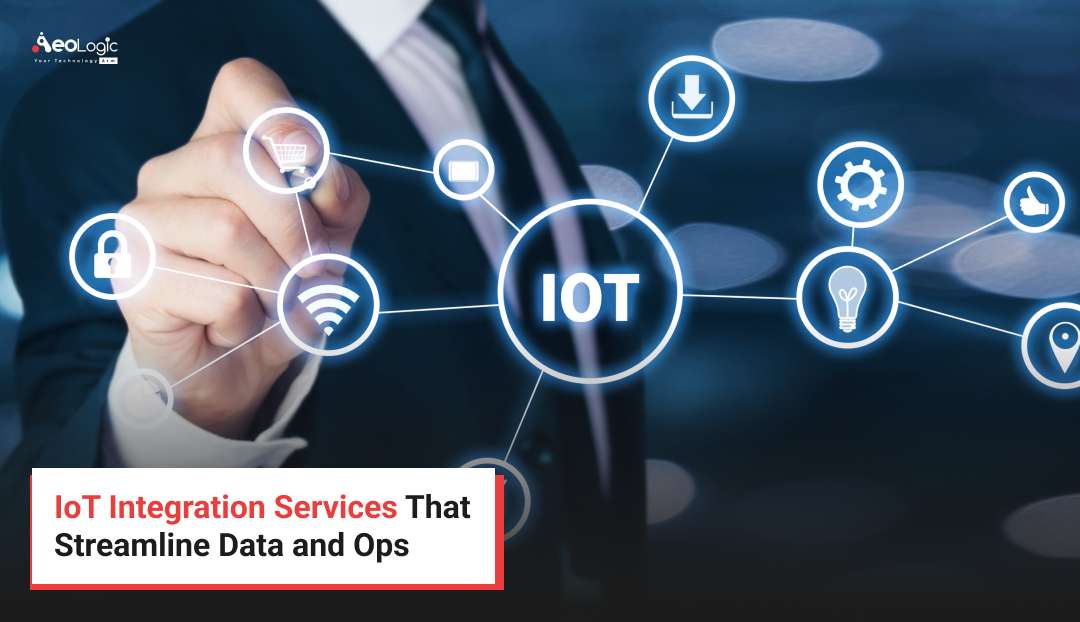Artificial intelligence (AI) is one of the most significant technological innovations of the 21st century, and it is having a profound impact on almost every industry. The healthcare sector is no exception, as AI is transforming the way we diagnose and treat diseases, and how we manage patient care. The potential of AI in healthcare is vast, and in this blog, we will discuss the future of AI solutions in the healthcare industry.
Future of AI solutions in Healthcare Industry
AI solutions in healthcare are already being used in a variety of ways, from identifying diseases to improving patient outcomes. These solutions include machine learning algorithms, natural language processing (NLP), and computer vision, among others. AI has the potential to revolutionize the healthcare industry, but it will require collaboration between industry leaders, governments, and technology companies to make it happen.
AI in Disease Diagnosis
AI has the potential to revolutionize the way we diagnose diseases, particularly in areas where there is a shortage of healthcare professionals. With the help of machine learning algorithms, AI can analyze vast amounts of data and identify patterns that might be too subtle for a human to notice. This is particularly useful in areas such as radiology, where AI can help identify tumors and other abnormalities.
AI-powered diagnostic tools are already being used in the field of ophthalmology, where AI can detect eye diseases like diabetic retinopathy and age-related macular degeneration. Similarly, AI can be used to detect skin cancer and other skin disorders through computer vision.
AI solutions in Disease Diagnosis
| Disease | AI solution | Benefits |
|---|---|---|
| Eye diseases | Machine learning algorithms | Early detection, improved patient outcomes |
| Skin cancer | Computer vision | Early detection, improved patient outcomes |
| Radiology | Machine learning algorithms | Improved accuracy, time-saving, increased productivity |
Also Read: The Importance of Information Technology in Healthcare
AI in Drug Discovery
The process of developing new drugs can be long, expensive, and risky. AI has the potential to speed up the process by analyzing vast amounts of data and predicting which compounds are most likely to be effective in treating a particular disease. Machine learning algorithms can also help identify new drug targets and predict potential side effects.
AI is already being used in drug discovery, particularly in the field of cancer research. For example, IBM’s Watson for Drug Discovery is being used to identify potential drug candidates for cancer treatment.
AI solutions in Drug Discovery
| Application | AI solution | Benefits |
|---|---|---|
| Cancer | Machine learning algorithms | Faster drug discovery, increased accuracy, reduced costs |
| Drug targets | Machine learning algorithms | Identification of new drug targets, reduced development costs |
| Side effects | Machine learning algorithms | Early prediction of potential side effects |
AI in Patient Monitoring
Patient monitoring is an essential part of healthcare, particularly for patients with chronic conditions who require continuous care. AI can help monitor patients remotely, reducing the need for frequent hospital visits and improving patient outcomes. Wearable devices, such as fitness trackers, can monitor vital signs such as heart rate, blood pressure, and oxygen saturation. Machine learning algorithms can analyze this data to detect any changes that may indicate a health problem.
AI-powered patient monitoring systems can also provide real-time alerts to healthcare providers if a patient’s vital signs indicate a potential health problem. This can help healthcare providers intervene early, reducing the risk of complications and improving patient outcomes.
AI solutions in Patient Monitoring
| Application | AI solution | Benefits |
|---|---|---|
| Wearable devices | Machine learning algorithms | Continuous monitoring, early detection of health problems |
| Real-time alerts | Machine learning algorithms | Early intervention, improved patient outcomes |
| Remote |
AI in Personalized Treatment
AI can help personalize treatment plans for patients based on their individual characteristics, such as genetics, lifestyle, and medical history. Machine learning algorithms can analyze vast amounts of data to identify patterns and predict how patients will respond to different treatments.
Personalized treatment plans can improve patient outcomes by reducing the risk of adverse reactions to medication and increasing the likelihood of successful treatment. For example, AI-powered precision oncology can help identify the most effective cancer treatments for individual patients based on their genetic profile.
AI solutions in Personalized Treatment
| Application | AI solution | Benefits |
|---|---|---|
| Precision medicine | Machine learning algorithms | Personalized treatment plans, increased treatment efficacy |
| Patient risk assessment | Machine learning algorithms | Early detection of health problems, improved patient outcomes |
Also Read: Technology is Making Healthcare Affordable and Accessible
AI in Healthcare Operations
AI can also be used to improve the efficiency of healthcare operations. For example, natural language processing (NLP) can be used to automate administrative tasks such as appointment scheduling and record-keeping, freeing up healthcare professionals to focus on patient care.
AI-powered chatbots can also provide patients with 24/7 access to healthcare advice and information. This can help reduce the strain on healthcare systems and improve patient outcomes by providing patients with timely and accurate information.
AI solutions in Healthcare Operations
| Application | AI solution | Benefits |
|---|---|---|
| Administrative tasks | Natural language processing | Increased efficiency, reduced administrative burden |
| Chatbots | Machine learning algorithms | 24/7 access to healthcare advice and information |
The Future of AI in Healthcare
The future of AI in healthcare is promising. As technology continues to evolve, AI will become increasingly integrated into the healthcare system, transforming the way we diagnose and treat diseases, and how we manage patient care. However, there are also challenges to be addressed, such as ensuring the ethical and responsible use of AI in healthcare and addressing concerns about data privacy and security.
To realize the full potential of AI in healthcare, a collaboration between industry leaders, governments, and technology companies is essential. By working together, we can develop AI solutions that improve patient outcomes, increase efficiency, and reduce healthcare costs.
Also Read: Information Technology Solutions for Healthcare
Final Thought
The future of AI solutions in the healthcare industry looks promising. AI-powered tools have the potential to transform patient care, reduce costs, and improve outcomes. From automating administrative tasks to aiding in medical diagnosis, AI is already making a significant impact on the healthcare landscape. As the technology advances, we can expect to see even more innovative solutions that help healthcare professionals deliver more personalized and effective care to their patients.
If you are also interested in taking an initiative in the medical sector and looking for industry experts, kindly collaborate for a collective effort. Do not hesitate to contact us at Aeologic Technologies.

I’m Deepika Pandey, an SEO strategist and content writer with 6+ years of experience. I create SEO-friendly content that drives traffic and engages readers. I combine data insights with creativity to help businesses grow their online presence effectively.






